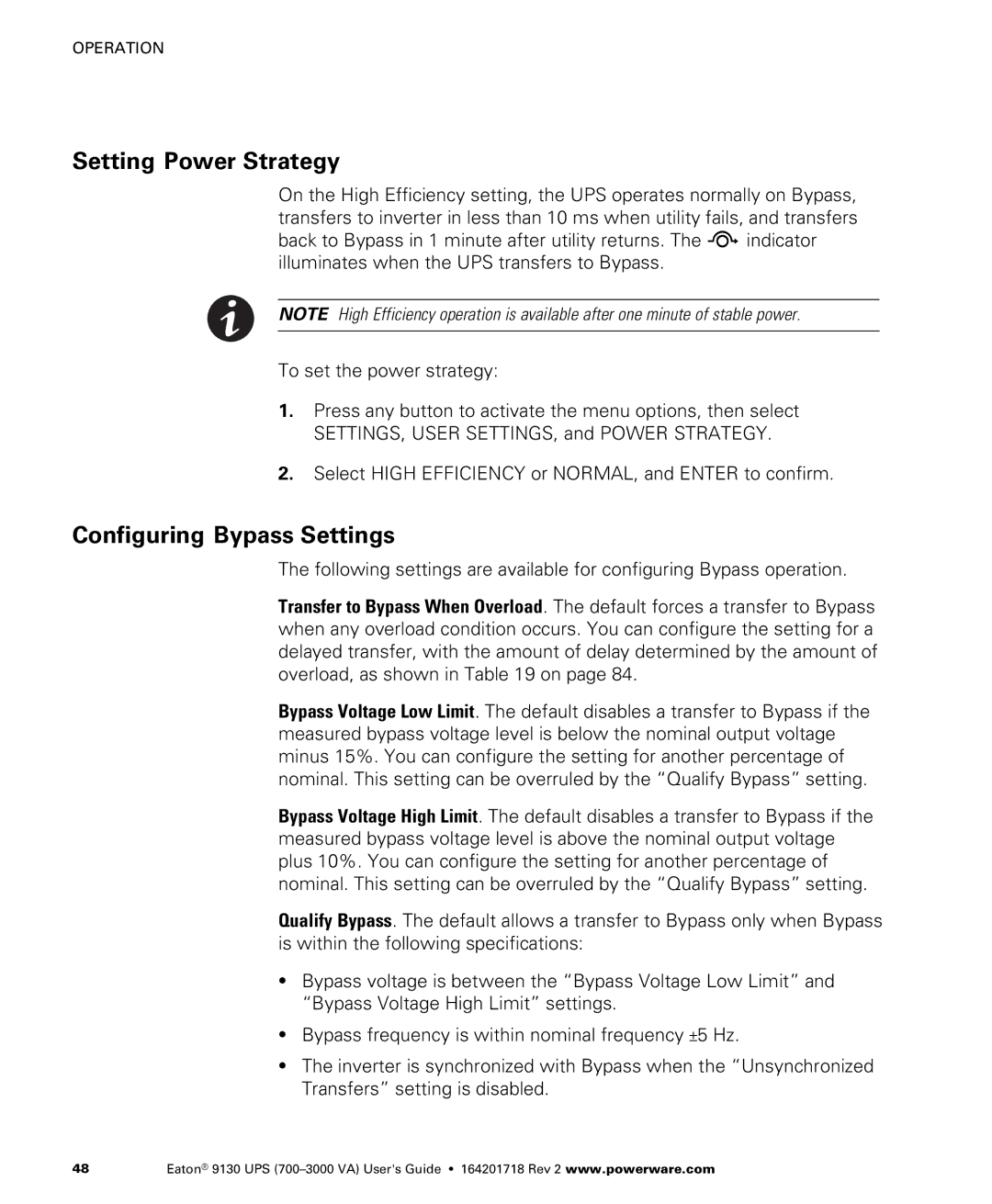OPERATION
ÊSetting Power Strategy
On the High Efficiency setting, the UPS operates normally on Bypass, transfers to inverter in less than 10 ms when utility fails, and transfers
back to Bypass in 1 minute after utility returns. The ![]() indicator illuminates when the UPS transfers to Bypass.
indicator illuminates when the UPS transfers to Bypass.
NOTE High Efficiency operation is available after one minute of stable power.
To set the power strategy:
1.Press any button to activate the menu options, then select SETTINGS, USER SETTINGS, and POWER STRATEGY.
2.Select HIGH EFFICIENCY or NORMAL, and ENTER to confirm.
ÊConfiguring Bypass Settings
The following settings are available for configuring Bypass operation.
Transfer to Bypass When Overload. The default forces a transfer to Bypass when any overload condition occurs. You can configure the setting for a delayed transfer, with the amount of delay determined by the amount of overload, as shown in Table 19 on page 84.
Bypass Voltage Low Limit. The default disables a transfer to Bypass if the measured bypass voltage level is below the nominal output voltage minus 15%. You can configure the setting for another percentage of nominal. This setting can be overruled by the “Qualify Bypass” setting.
Bypass Voltage High Limit. The default disables a transfer to Bypass if the measured bypass voltage level is above the nominal output voltage plus 10%. You can configure the setting for another percentage of nominal. This setting can be overruled by the “Qualify Bypass” setting.
Qualify Bypass. The default allows a transfer to Bypass only when Bypass is within the following specifications:
SBypass voltage is between the “Bypass Voltage Low Limit” and “Bypass Voltage High Limit” settings.
SBypass frequency is within nominal frequency ±5 Hz.
SThe inverter is synchronized with Bypass when the “Unsynchronized Transfers” setting is disabled.
48 | Eaton® 9130 UPS |
